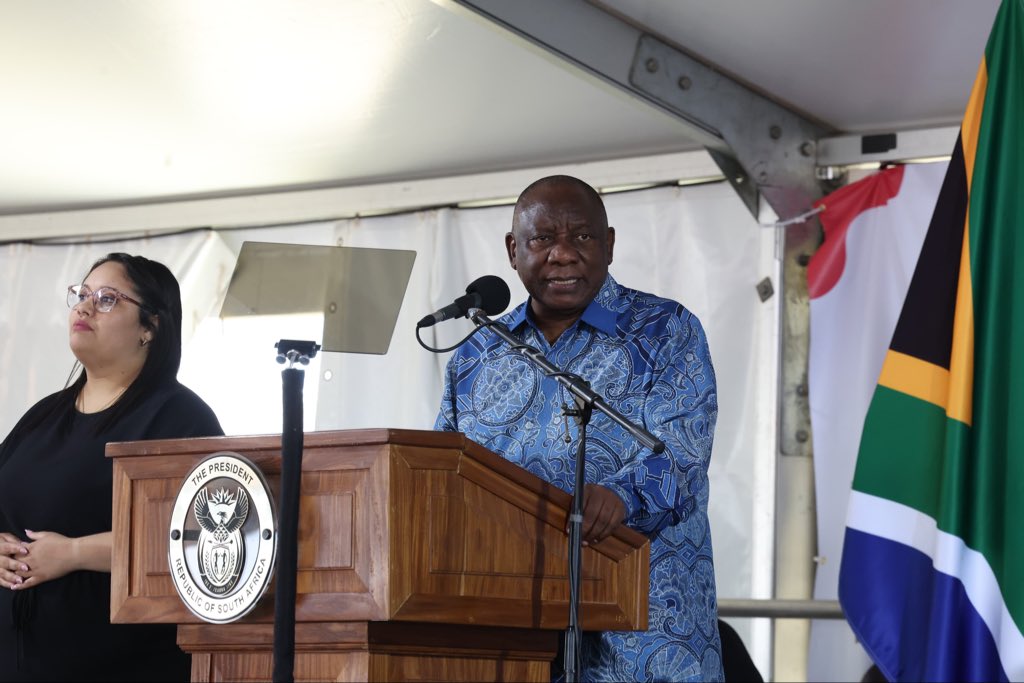By Akani Nkuna
As part of efforts to transform society and the country, President Cyril Ramaphosa has announced further details on next year’s National Dialogue.
Speaking at Reconciliation Day celebrations on Monday, the president emphasised that reconciliation was not a symbolic act. It required fundamental transformation of society to create a fair and just nation.
One way to achieve this was through the Government of National Unity’s programme to prioritise inclusive growth, job creation and transformation, and also by reaffirming a commitment to work together through the National Dialogue to define the path that the country would take.
Delivering the keynote address at the gathering in Vredendal, also known as the Valley of Peace, in the Western Cape, Ramaphosa said that through various actions, the country was reigniting its collective vision and shared passion to create a South Africa that worked for all its people.
“We are confronting our challenges with the courage and determination displayed during the darkest days of the struggle against apartheid. South Africa has a rich history of inclusive solutions to problems,” he told thousands of people.
On the National Dialogue, the president said it would seek to build on the achievements of 30 years of democracy, and give citizens an opportunity to address the challenges over the last 15 years, including low growth, unemployment, poverty, hunger, poor governance, slow land reform and corruption.
The government also wanted the dialogue to address pressing challenges such as gender-based violence, femicide, social fragmentation, racism, homophobia, sexism, violence and instability.
“The National Dialogue will strengthen and consolidate the process of social compacting, where we come together as different sectors and communities to find common solutions,” Ramaphosa said.
“It is envisaged that the National Dialogue will be informed by an extensive public consultation process in local areas organised by various sectors of society.”
He told the gathering that since June following his inauguration, the government had received many representations from civil society, including foundations established by stalwarts of freedom struggle.
Further consultations were underway with other formations on the form and content of the National Dialogue, and in due course, Ramaphosa would announce an Advisory Panel of Eminent Persons to provide guidance and advice through the dialogue process.
He said the panel would include men and women of stature who have played prominent roles in nation building and advancing social cohesion.
The president would also appoint a steering committee to coordinate the process. It would comprise foundation that have been pushing for the conversation, as well as members of government, labour, business and civil society.
All the necessary structures and processes would be in place early next year so that the preparations could begin in earnest.
“We expect that the National Dialogue will reach agreement on the critical challenges facing the nation. It is expected to develop a shared vision of what it means to be a South African and of a common value system, that will guide current and future generations.
“With a renewed commitment to social justice, economic empowerment and cultural understanding, our country can continue to build on its achievements. We can fulfil our destiny to be a truly reconciled, equal, caring and united nation,” Ramaphosa said.
He reminded South Africans that Reconciliation Day was important as it helped mend the scars of the past and pave the way for a united and prosperous future.
“For much of our history, this day – the 16th of December – stood as a symbol of the wounds of our history. For some it was a celebration of victory. For others, it was a painful reminder of conquest and dispossession.
“Since the advent of democracy, we have sought to do away with symbols that are divisive. We chose to mark the 16th of December as a Day of Reconciliation. A celebration of our unity in diversity,” said Ramaphosa.
Celebrating the people of the Western Cape, Ramaphosa noted that the province has a rich history of brave resistance against oppression, with its people fighting tirelessly for their rights. The Coloured community, in particular, faced unimaginable hardships, from the cruelty of slavery to the injustices of dispossession and segregation.
Despite the apartheid regime’s attempts to drive a wedge between the people of the Western Cape, they stood strong and united in their quest for equality and justice, he said.
The president also spoke about post-apartheid South Africa leveraging various channels, including sports, education, arts and family-focused initiatives to foster unity and celebrate diversity.
“Reconciliation involves both the healing of historical wounds and the bridging of social, economic and racial divides. Our goal is to foster unity and social cohesion amongst the country’s diverse communities, and encourage mutual respect and understanding,” Ramaphosa added.
INSIDE POLITICS

